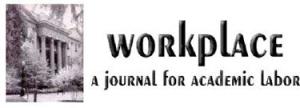Resources
Podcast Series. In each podcast the editors provide a review of the current issue of "Times Higher Education."
Podcast Series. Interviews with effective and critically reflective professors
A global leadership training and consulting program serving religious and civic leaders who are committed to solving society’s most intractable problems, such as racism, extremism, and economic justice. Includes resources suitable for classroom use.
Formally known as a “Small Group Instructional Diagnosis” (SGID), specialists from the Illinois State Center for Teaching, Learning and Technology visit a classroom and interview the students in a consensus-building process that enables instructors to gain insights into students' perceptions about the class and their learning.
Syllabi of five courses taught within new interfaith and interreligious studies programs. Also  model student learning outcomes and curricular programs. 
CAEL is a nonprofit that works at all levels within the higher education, public, and private sectors to make it easier for people to get the education and training they need. Competency-Based Education suggests various alternative enrollment, assessment, and credentialing processes. 

Workplace is a refereed, open access journal published by the Institute for Critical Education Studies (ICES) and a collective of scholars in critical university studies, or critical higher education, promoting dignity and integrity in academic work. Contributions are aimed at higher education workplace scholar-activism and dialogue on all issues of academic labor.
An interface between academic learning and civic engagement. The Initiative promotes the divergent thinking of arts and humanities in the service of solutions to real life problems.
When teaching diversity courses that discuss sensitive issues, such as racial, gender, sexuality, religious, and ethnic discrimination, it is possible to encounter student resistance, which can subsequently prevent students from comprehending the content. While teaching an introductory course on African American history in a Black Studies Department at a predominantly white institution of higher education in Middle America, I experienced such resistance. This article discusses how I initially taught the course, evaluated and then restructured my active learning approach to include reflective learning and Black Studies techniques to address that resistance.
A spreadsheet Google Doc comparing a range of e-tools that support differentiation of instruction to support learner needs, created and maintained by education consultant John McCarthy.